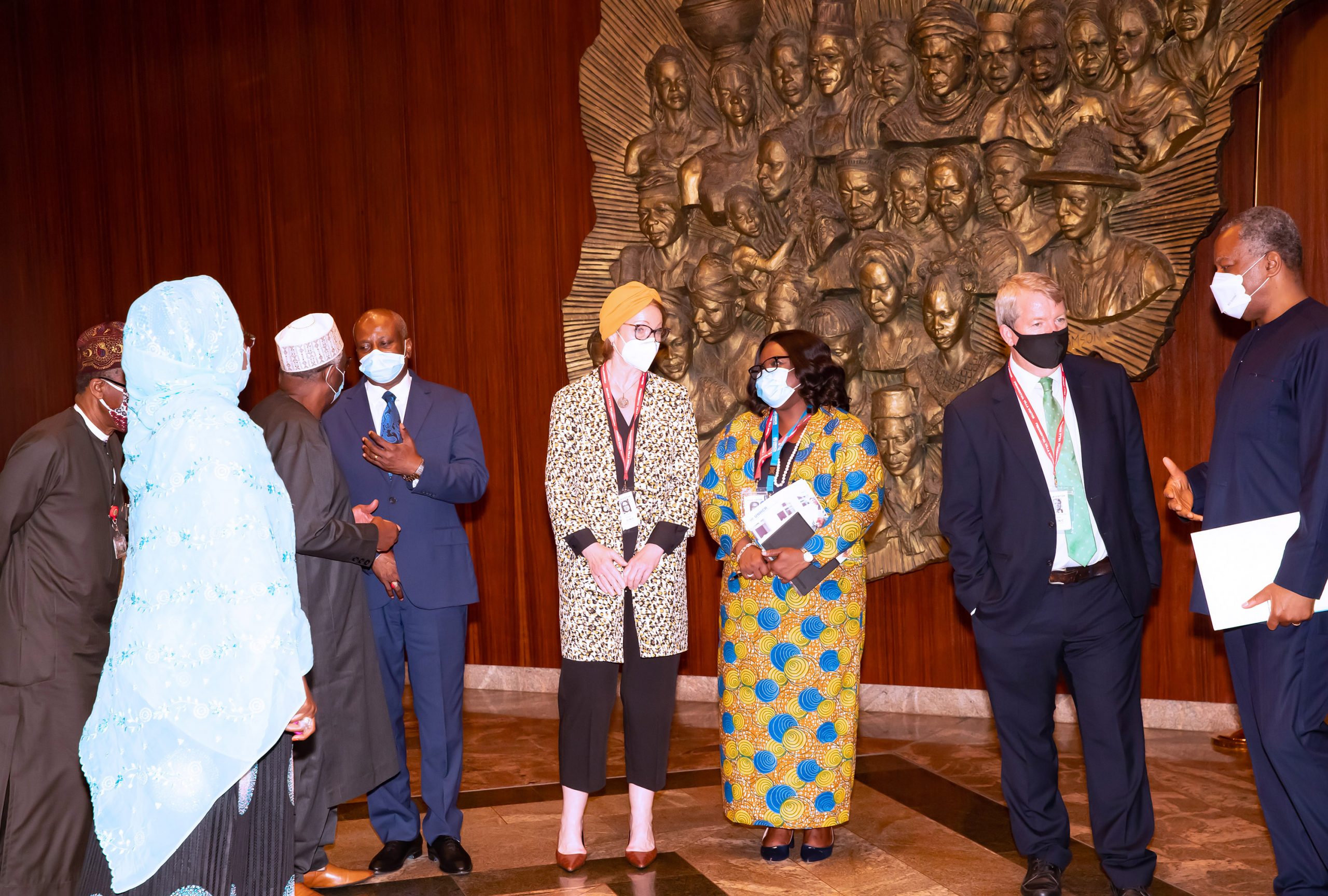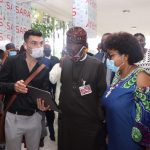Worried by the decade-long insurgency and banditry in the Northeast and Northwest Nigeria, the United Nations has urged the Federal Government to consider a mix of military force, dialogue and political solution as its new national security strategy to the war.
The UN noted that the banditry in the Northwest is combined with terrorism and therefore advised the government to embrace dialogue with force in fighting insurgency and banditry.
The UN Resident Coordinator and Humanitarian Coordinator in Nigeria, Mr Edward Kallon said this after leading the world body’s delegation to a meeting with President Muhammadu Buhari at the Presidential Villa, Abuja on Monday.
“Solutions to the crises must be pursued from the political, economic and social perspectives and the relationship among the three factors must be established in the efforts to address issues of criminality, banditry and terrorism in Nigeria.
“So the conflict is still ongoing. It’s not over. But today again, I told Mr. President said that in addition to the military effort, there is a need to complement that with an enhanced dialogue and political approach process in search of a durable solution to the crisis,’’ he said.
He disclosed that the international body had invested an average of $1.5 billion annually to support the humanitarian and development efforts of the federal government.
The team was on a “thank you’’ visit to Buhari particularly for the country’s support to multilateralism and the rehabilitation of the UN House in Abuja after it was attacked by terrorists in August 2011 which claimed 21 lives.
The UN envoy classified the security crises bedeviling the country into three — identity-based conflicts, resource-based conflicts and power-based conflicts — which he said required different approaches and solutions to tackle it.
“The attempt to find solution to banditry in Nigeria, for instance, is complicated as a result of its combination with terrorism. Solution to this range of security crises is difficult to decipher because each of them has to be separately dealt with.
“We think various approaches have to be used to find a solution. But when you talk about conflicts in Nigeria, we are talking about three typologies. There is no one size fits all. You have identity-based conflicts, resource-based and power-based conflicts. Each of those typologies require different approaches and solutions. That is the complex axis we are dealing with.
“In the Northwest, you have the situation of banditry that is mixed up with some elements of terrorism which makes it even more complex. And there is also power based-conflict that is ongoing. So, because of the mixture of these typologies within Nigeria itself, that is why it is so difficult to find solutions to them, because you have to deal with each of them.
“But underneath all these beehives of conflicts dynamics, there are three dynamics that before a solution is found, we must look at the political, economy and social context that are so critical in finding a solution. The relationship between those three factors remains extremely important when you start looking at the issue of criminality, banditry and terrorism.
“My call to His Excellency is to look at that robust mechanisms as a way of trying to find solutions to the conflicts in general,” he said.
Kallong also spoke on humanitarian crisis in the North-east, recalling that at the beginning of insurgency in the region, it was impossible to gain access to the internally displaced persons (IDPs) camps, pointing out that even though the situation has improved now, it is still cumbersome because IDPs “are still kept in garrison type of camps,’’ the UN chief said.
Kallon also said victims of insurgency in the North-east have been unable to return to their various homes to continue with their livelihoods, advising the president to make the search for peace in the region his major commitment.
The UN representative added that in the efforts to achieve peace building in the region that will bring lasting reliefs to displaced 1.2 million persons as well as 293,000 refugees in Niger, Chad and Cameroon, a framework to find a solution to the crisis in North-east must be deliberately created.
He explained: “I have been part of this endeavour for three and half years, from the time we had no access to the affected population, to the point where we had access to the affected population who are currently in IDP camps, and that is due to the gradual improvement of security that was possible.
“Most of you could remember at the beginning of this crisis – there was no access to the affected population because of insecurity. That element has improved over the years. Yet still, the situation is still extremely difficult in the sense that the population are still kept in garrison type of camps. People are not able to go back to undertake their normal activities to rebuild their lives and livelihood. There are periodic attacks on them by non-state armed groups.
“So, it is quite a difficult situation at this point in time. As a result of that, we are very clear on, and I told this to Mr. President, that there are no humanitarian solutions to humanitarian problems and that the only solution to the North-east is peace. The only thing we can do is to ensure that in whatever we do, we prioritize prevention. We support development in areas feasible and we provide humanitarian assistance when needed.
“In our jargons, we say we have to bridge the humanitarian development of peace building as a framework to find a solution to the crisis in North-east Nigeria. The affected people especially the 1.2 million IDPs and over 293,000 refugees in Niger, Chad and Cameroon must be supported in every way.’’
On the COVIUD-19 pandemic, Kallon said Nigeria should see the pandemic as an opportunity to strengthen its health institutions, urging government to take bold steps to restructure and reform health institutions.
“The system of financing health, the coordination between federal and state structures, the rebuilding of quality health centers that are staffed by trained health workers with appropriate supplies are the challenges critical to building a primary health care system capable of sustaining Universal Health Coverage in all aspects of health care and need a renewed focus from leadership coupled with strengthened partnerships.
“I would recommend you request your government to put into action bold and effective changes to restructure and reform the Government health institutions to improve efficiency and cooperation across the board. The United Nations is Nigeria’s first partner in this challenge, and we are ready to do our part.”
While noting that COVID-19 has been likened to an x-ray that has revealed fractures in the fragile skeleton of the societies, he pointed out that the pandemic had laid bare risks including inadequate health systems, gaps in social protection, structural inequalities, environmental degradation and the climate crisis.
According to him, there is a need to work together to find innovative solutions to turn this human tragedy into a generational opportunity to build a better and equal and sustainable world.
On the fight against corruption, the UN chief commended President Buhari for his resolve to reform and return discipline to the public service as well as the success in fighting corruption including the convictions and recovery of assets.
“As you continue to strengthen institutions to fight corruption, we now also need to increase our support for grassroots and ‘people-centered’ approach and get all members of the community involved and engaged.’’
Kallon noted that there had been “commendable incremental improvements in the electoral process’’ since the country returned to democracy.
On census, he said another national census was long over-due and urged critical planning and effective management of national resources to guide strategic investments in health care, education food security, human resources and social services.
























Leave a comment